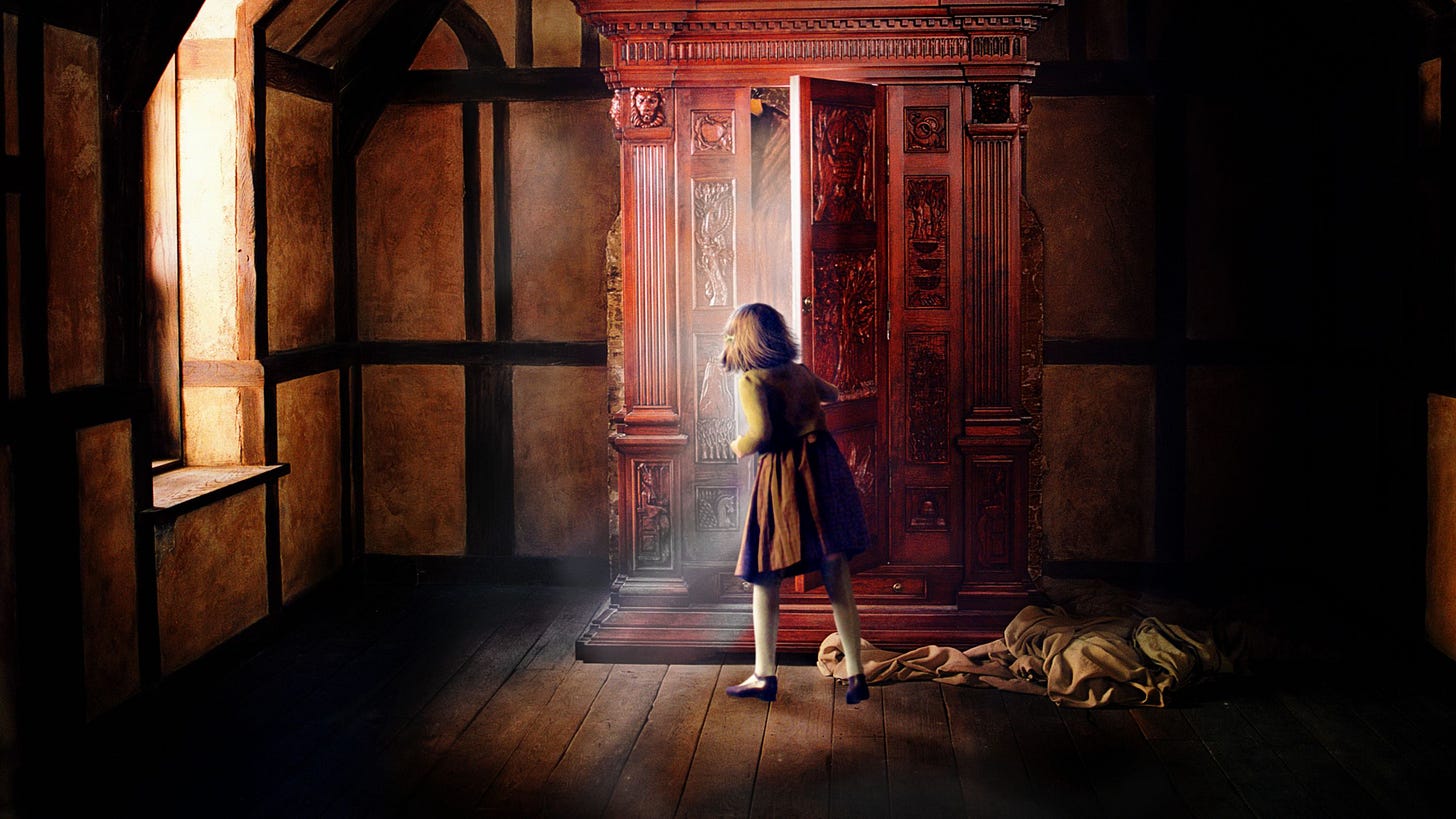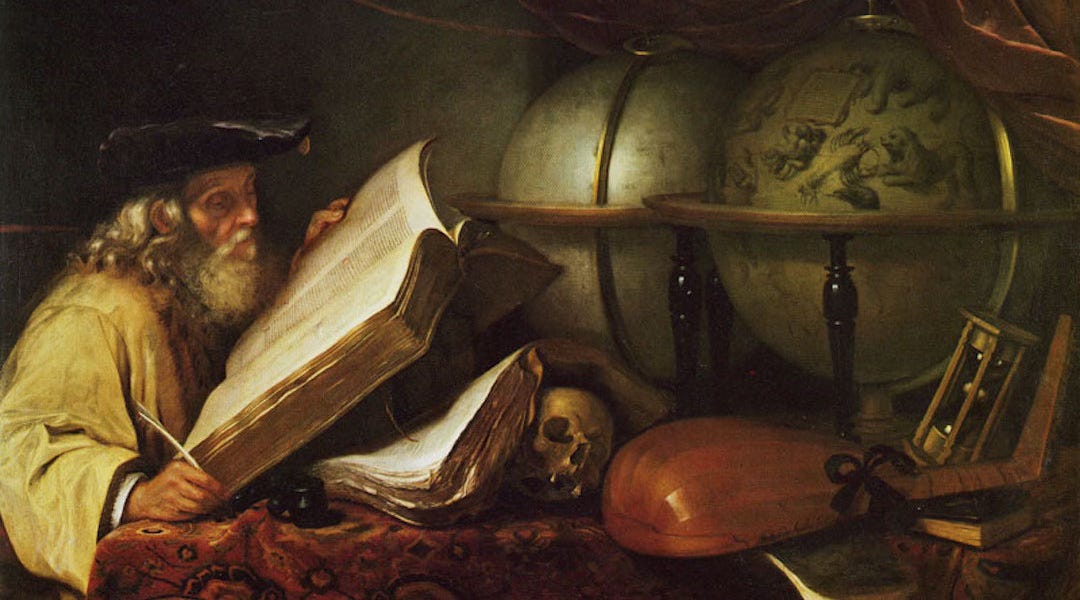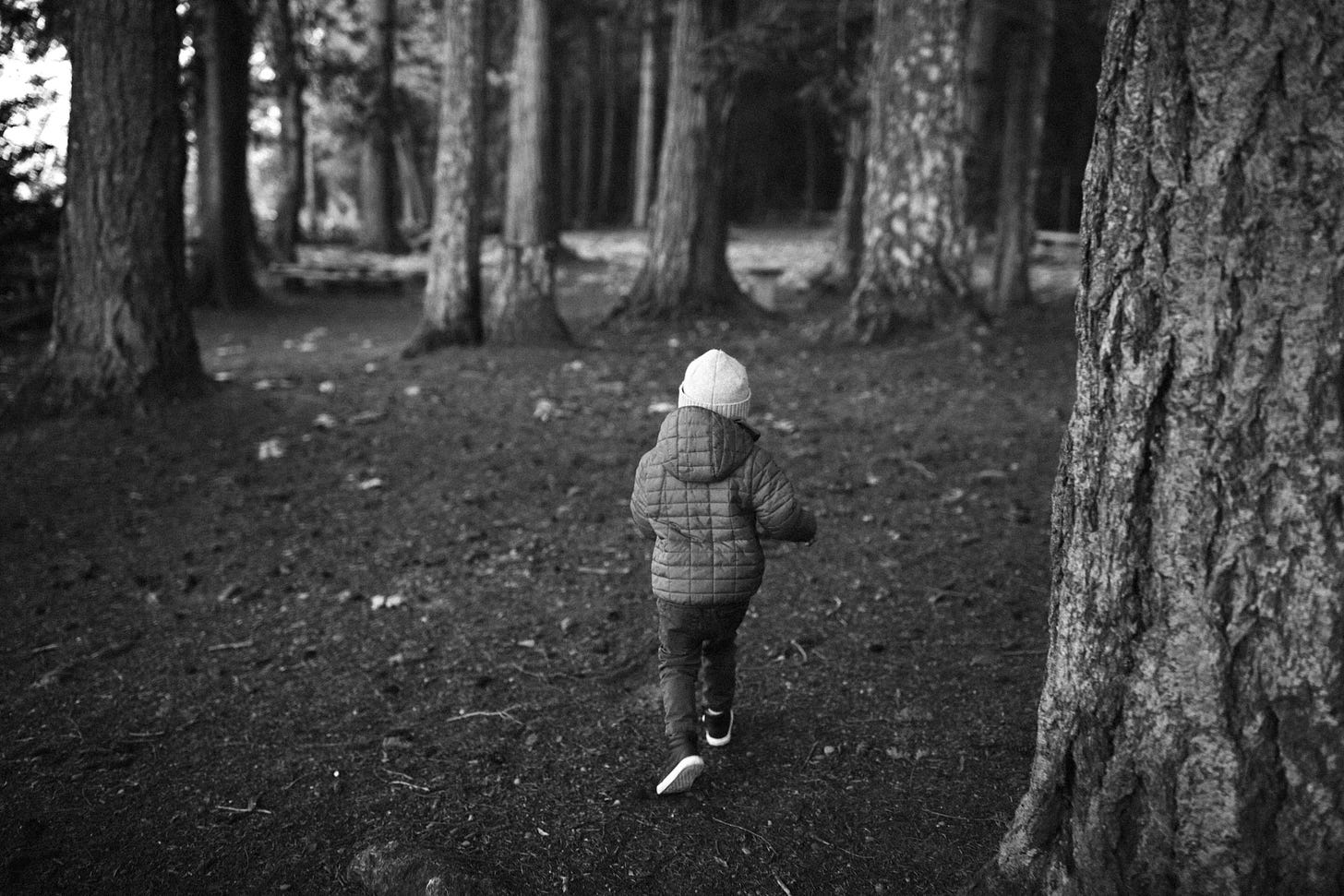Becoming Un-Disenchanted
Pt. 2 - understanding the cure for our cynical hearts
I wrote in a previous post about the shape and danger of cynicism. How it is a cancer to the soul that has poisoned our society. In this piece, I want to offer what I believe to be a cure to this madness and malady.
I am in no way an expert or psychologist, just a man who has walked the paths of cynicism and has found new and better paths to tread. And to be very clear, I do not think there is some singular antidote — a pill, if you will, that you can simply take to erase the effects. The cure lies more in a posture of our hearts, a way we approach the world and what we choose to believe about it. It’s not out of reach for anyone, nor does it require some strenuous effort — but it will demand that we humble ourselves.
To understand what can cure a disease, you must first understand the disease itself — to stand inside the thing. If this does not take place, then we risk aiming at a target that we have never seen with our eyes. Here is how I explained the inner workings of cynicism from part one:
It is the slow theft of joy, the plundering of the riches where there is no longer found the source or ability to dance, sing, and give. It is the unannounced arrival of a darkened fog that becomes a heavy veil draped over the eyes of the heart. It is a type of death that only the living can experience; the hollowing out of wonder that creates the vacancy of belief. It is the wind of suspicion that starts as a gentle breeze and grows to ravage and ruin its victims, sucking them ever inward, like the violent pull of a black hole.
A few things to key in on here: cynicism is the diminishment of joy, a darkened veil over our hearts, a depletion of wonder and a soul-sucking state of suspicion. These might seem like strong words for what we might call a prudent way to walk in this broken world, but the more sober-minded we are, the more we will recognize the cost of living in such a state. So what can puncture the veil? What can stop the bleeding of belief? It is not so much the act of learning something new, but a return to something that we have lost. We have grown up, and not in all the best of ways...
Growing Up In The Wrong Direction
In the famous preface to The Lion, the Witch and the Wardrobe, C.S. Lewis wrote to his goddaughter Lucy Barfield, “I wrote this story for you, but when I began it I had not realized that girls grow quicker than books. As a result you are already too old for fairy tales, and by the time it is printed and bound you will be older still. But someday you will be old enough to start reading fairy tales again." Here lies both the root of cynicism and the antidote. Embedded in this endearing preface is a nod to the strong view that Lewis held about growing up and adulthood. The act of aging, as we all understand it, is not just that we grow into something, but that we grow out of something. Lewis writes in his essay On Three Ways of Writing for Children,"A tree grows because it adds rings: a train doesn't grow by leaving one station behind and puffing on to the next." It is not called maturity just because we move on from certain things that we possessed in former years. There are, of course, traits that we should be eager to leave behind; whining, selfishness, impulsivity, emotional instability, etc. But there are some traits and things that we should never depart from. In the pursuit of growing up as proper adults, we have left behind a certain way of seeing the world. In the pursuit of maturity, we have moved on from the embarrassing love of the imaginary and the unseen and the fantastical. We have traded in a world of mystery for a world of neatly organized categories and sensible explanations. We have grown out of the juvenile outlook that there is more to this world than what we can see with our eyes or understand with our tools. What does this have to do with cynicism? How does this help cure this madness within us? We are the train that has left the station behind and puffed onto the next, all in the name of evolution, progress, modernity and maturity. We have put childishness behind us, we proudly declare, with our puffed chests. But in moving forward, we have left something behind that we desperately still need — a living and growing sense of wonder.
Too Modern For Our Own Good
We are in need of a recovery. We must see the world differently. Yet, we must not trust and heed the lulling sirens of progress, but rather the ancient choir of history. We dare not commit, as Lewis describes it, chronological snobbery, “the uncritical acceptance of the intellectual climate of our own age and the assumption that whatever has gone out of date is on that count discredited.” What is Lewis warning us of? Being so arrogant that we think that the thoughts, beliefs and perspectives of the past are outdated and irrelevant — while the thoughts and beliefs that we have now should be unquestionably accepted as true and better. We are guilty of this as a society and our hubris does not even pretend to hide here. If we are going to be suspicious about anything, it should be about how right we believe we are as a culture when it comes to understanding this world and ourselves.
Did you know that the way we modern and advanced people understand the world is actually a fairly new perspective in light of the long span of humanity. Up until a few hundred years ago (1500-1700s), nearly every civilization and age operated from the assumption that we live in a transcendent world — a world in which the sacred, the supernatural and the mystical was as real as the drops of rain that fall onto our skin. But something happened with our view of the world during the periods of the Scientific Revolution and the Enlightenment (forgive this overly simplistic analysis of something far deeper). Society began to dissect and explore things like never before. We began to discover hidden realities under our microscopes and unseen expanses through our telescopes. What seemed to happen was the wild world suddenly became something we could measure, label and analyze, and we began to give natural explanations to things that were, in the past, unexplainable and mystical. It's not that the material explanations were all wrong or bad — the shift was in that people were now living in a world where they could be content with just material and natural explanations. Suffice it to say that this new worldview of materialism and reductionism had stripped away the very organic and natural ability to be content with mystery, spirituality and a sense of reverence towards life. We could now make sense of this world, ourselves and life without God or a sense of something sacred.
Ah, you might say, but doesn't discovering things like a trillion new galaxies and the movement of subatomic particles create more wonder, not less? How is this a bad thing? Yes, in a very real sense, it can certainly show us the vastness of this world and how small we really are. It should stun us and humble us in profound ways. It should awaken us to the reality that there is more than we ever realized there could be. I'm thankful for it — and it would be great if we let it lead us to this conclusion... But we didn't. We have taken those miraculous observations and have deduced that the world is more like a machine with parts that can be manipulated, fractured and controlled than a wild, living organism that we are called to steward and marvel at (for a deeper understanding of this, read Against The Machine, by Paul Kingsnorth). And so we arrive in our present day. More advanced than ever before and more cynical, suspicious and disbelieving. We walk around with an air of pride, thinking we have finally figured things out, and this has led our hearts to calcify and our view of reality to become distorted. The deep magic has faded in the ethos of our culture. The mysteries are being solved with algorithms. The miracles are being explained away with data. The sacred is now seen as archaic. We have lost a sense of childlike wonder, something that we desperately need to fight the tide of cynicism that is rising. But how do we regain what we have lost?
Recovering The Lost Magic
I’ve heard Malcolm Guite talk about how the world does not need to be re-enchanted, it is us modern people that need to be un-disenchanted. We do not need to put mystery and beauty back into the world. It is throbbing with it; every sunrise, piece of music, act of mercy, sip of coffee — it is all dripping with otherworldly glory. It never faded. We just stopped paying attention to it.
The need of this hour is for us to become un-disenchanted.
Humility is where this must start.
A type of humility that confesses that we do not have the corner on the market of understanding this world. Humility that admits that there must be more than what we can compute in our finite thinking. A humility that acknowledges enigmas. A humility that says we might be wrong, or at least not fully correct. Humility that confesses that the worldviews of the past might have more ring of truth to it still. Humility that says maybe our children were right all along.
In my own experience, I have seen that the path to wonder must go through the door of humility. Pride and entitlement, the belief and claim that this world exists for our gain, always cuts down wonder at the root. The arrogance of claiming that something cannot be real simply because we cannot see it is foolish at best.
I guess what I am saying is that we must become like children again. Being open to the world around us. Regaining belief that this Universe has a numinous beauty to it. That not only can we never explain it all or understand it all, but that the idea that we can even do so is destructive in itself. That every new scientific discovery and every new galaxy found leads us to a widening of our understanding of existence, not a reducing down of it. That we attempt to understand things not from dislocated parts, but by respecting and seeing the whole of a thing, in its proper context.
I can hear your thoughts.
Become like children again?
They are cute, but they are naive…
For the longest time, we have attached a negative connotation to being naive. We give this label freely to children who we think don’t know any better and are gullible. But this word was not always a critique. The latin word from which this originates is nativus, meaning innate and natural, giving the idea of an original state. It almost gives off the implication of being unspoiled and innocent.
And so, when we accuse someone of being naive, what we are really saying is that they haven’t fully absorbed the world’s disillusionment. They’re still native to something fresh, uncorrupted, and undamaged. They have not become disenchanted. They do not lock up their belief as cynicism instructs them to, but rather give it away generously, and are all the more blessed by it and joyful for it.
They are unspoiled, free and open to wonder.
I think this is why Jesus said, “Truly, I say to you, unless you turn and become like children, you will never enter the kingdom of heaven” (Matthew 18:3).
Thanks for reading a long, friends. I would love to know your thoughts and reflections in the comments.








This resonates with me so much as a highly imaginative writer and a young adult who sees beauty everywhere. I think people see me as naive quite often, but I can’t help being so full of wonder! Thank you for sharing this - God bless!
This is really good and I agree! Trouble for me is helping those close to me who are very cynical. A loved one just told me yesterday how he always looks at things from the worst case scenario point of view. It deeply saddens me. I wish I could better help him develop a sense of awe and wonder—the antidote to this cynical worldview!